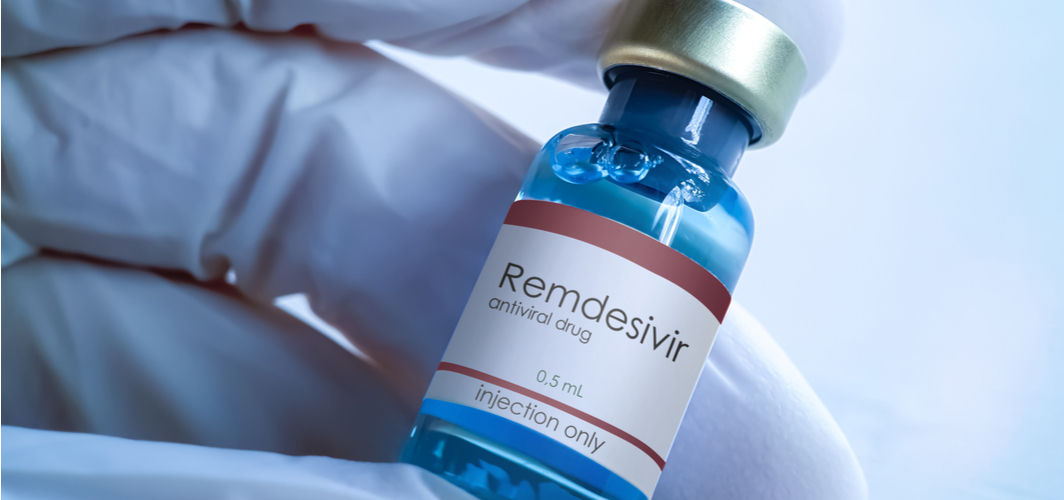Coronavirus Updates
Understanding the Controversy Surrounding Remdesivir
3 min read
By Apollo 24/7, Published on - 13 January 2022, Updated on - 18 October 2022
Share this article
0
1 like

In April and May 2021, India witnessed a catastrophic second wave of the COVID-19 pandemic. During this period, millions of people got infected by the highly contagious Delta variant of the SARS-CoV-2 virus and hundreds of thousands lost their lives to it. People stood in long queues outside pharmacies for access to life-saving medicines, one of which was Remdesivir.
Owing to the soaring cases of COVID-19 fuelled by the Omicron variant in January 2022, the medication is once again in the limelight. Despite its widespread use, there is an ongoing debate surrounding the effectiveness of Remdesivir in the treatment of COVID-19. The article below explains why this medicine is at the centre of controversy.
What is Remdesivir?
Remdesivir is a broad-spectrum antiviral medication. It was originally developed by US biopharmaceutical company Gilead Sciences to treat Hepatitis C, but was later repurposed as a potential treatment for Ebola virus disease. The medication works by preventing viral replication in human cells. Since 2020, Remdesivir has been approved for emergency use against COVID-19 in many countries.
In April 2020, a small-scale trial conducted by researchers in China noted that the drug impedes the replication of the SARS-CoV-2 virus and prevents further transmission. In the absence of other proven medication, the promising early findings resulted in emergency approval by many countries, including India. It has also been approved by the US Food and Drug Administration (FDA) for hospitalized patients with mild-to-severe COVID‑19.
Recommended Reading: Can the Antiviral Medicine Molnupiravir Stop COVID-19 Transmission?
WHO Advisory for the Use of Remdesivir
The World Health Organization (WHO) has released a conditional recommendation against Remdesivir use in hospitalized COVID-19 patients, irrespective of disease severity. The recommendation, published in November 2020, is based on data from four international randomized trials that evaluated several treatments for COVID-19 and included over 7,000 hospitalized COVID-19 patients. The assessment by WHO’s panel of experts concluded that the drug has no significant effect on the risk of death, the need for mechanical ventilation, the time taken for recovery, or any other notable patient outcomes.
Recommended reading: What are the Medicines Being Used to Treat COVID-19?
Advisory on Remdesivir Use in India
In spite of the WHO recommendation against the use of Remdesivir in COVID-19 patients, the medication continues to be widely used in India. Recently, the Union Ministry of Health and Family Welfare issued updated guidelines for the use of Remdesivir in COVID-19 patients. According to the new guidelines, the drug should only be administered to patients with moderate to severe COVID-19. It also mentioned that Remdesivir should be given only to those COVID-19 patients who have not exhibited any kidney or liver dysfunction within 10 days of the onset of any symptom. The updated guidelines have also prohibited Remdesivir for patients who are not on supplemental oxygen, or those in home isolation.
Conclusion
Remdesivir is an antiviral medication that is prescribed to treat hospitalized COVID-19 patients. Although it is being widely used across the world, there is a great deal of controversy surrounding its efficacy. According to the WHO, Remdesivir has no meaningful positive effect against the risk of death from COVID-19 or any other important patient outcomes. On the other hand, it has been approved for restricted use by drug regulatory authorities in several countries, including India and the US. Studies are still underway to determine the real-world effectiveness of Remdesivir.
Worried about your risk of contracting COVID-19? Connect with a COVID-19 expert from the comfort of your home via the Apollo 24|7 app.
Coronavirus Updates
Leave Comment
Recommended for you

Coronavirus Updates
How Do We Keep Our Kids Safe During COVID-19?
Data available to date shows that children are less likely to get COVID-19 as compared to adults. In children with previous existing medical conditions, it may cause severe illness.

Coronavirus Updates
How Does Coronavirus or COVID-19 Spread?
COVID-19 is thought to spread mainly through close contact from person-to-person in respiratory droplets from someone who is infected. People who are infected often have symptoms of illness. Some people without symptoms may be able to spread the virus.

Coronavirus Updates
COVID-19 Vaccine: The latest updates
More than 150 COVID-19 vaccine candidates worldwide are in development. So far, 156 economies have signed up for COVAX, a WHO initiative, to deliver 2 billion doses by the end of 2021.
Subscribe
Sign up for our free Health Library Daily Newsletter
Get doctor-approved health tips, news, and more.
Visual Stories

COVID-19: The situation on ground [6th July 2021]
Tap to continue exploring
Recommended for you

Coronavirus Updates
How Do We Keep Our Kids Safe During COVID-19?
Data available to date shows that children are less likely to get COVID-19 as compared to adults. In children with previous existing medical conditions, it may cause severe illness.

Coronavirus Updates
How Does Coronavirus or COVID-19 Spread?
COVID-19 is thought to spread mainly through close contact from person-to-person in respiratory droplets from someone who is infected. People who are infected often have symptoms of illness. Some people without symptoms may be able to spread the virus.

Coronavirus Updates
COVID-19 Vaccine: The latest updates
More than 150 COVID-19 vaccine candidates worldwide are in development. So far, 156 economies have signed up for COVAX, a WHO initiative, to deliver 2 billion doses by the end of 2021.